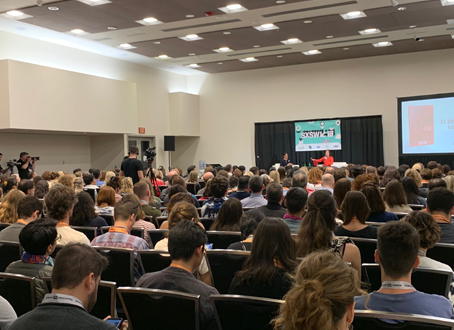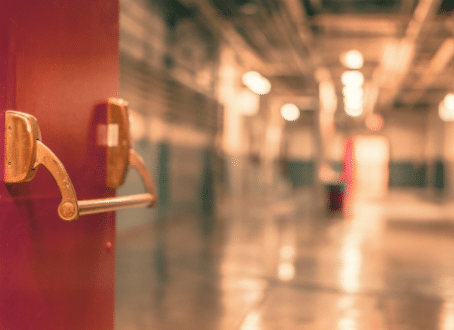There are certain people in life that we are lucky enough to meet and who make an impact on our lives. For me, common among all of those people who have made an indelible mark on my life is a courageousness and spirit that is truly infectious. They make us wonder why we are not out doing more and they inspire us to look inward and challenge ourselves to face the world with fewer limitations—to be more fearless.
BethAnn Telford of Team BT is one of these unique individuals who I will never forget. She has been surviving with a brain tumor for nearly 10 years. During that time she has pushed herself well beyond limits that would hold most of us back. In October of 2012, she completed the IRONMAN World Championship triathlon in Kona, HI. She earned her coveted spot through the Kona Inspired program, which selects only seven deserving athletes each year.
Our staff is truly inspired by her story and her dedication to the children who are living with brain cancer, with whom she makes a point to befriend and engage continuously. I saw her for the first time a year ago at the 2013 Washington, DC, Race for Hope — the annual run/walk hosted in the spring by Accelerate Brain Cancer Cure and the National Brian Tumor Society to raise money for brain cancer research. She addressed the crowd at the starting line and did a wonderful job of energizing the crowd and reminding everyone why we were there on that chilly morning.
More recently, I met her in person and listened first hand to her tell her amazing story of triumph over her diagnosis. I had the opportunity to get her insight into what being fearless means and how she incorporates fearlessness into her role as a leader and advocate.
Case Foundation: What do you think it means to Be Fearless?
BethAnn Telford: To me, being fearless means challenging yourself to push your boundaries, regardless of your circumstances, and not setting limitations on what you believe you can accomplish.
CF: What role can people play in highlighting and championing fearless approaches in their community and own personal life?
BT: I think people can draw strength and inspiration from others in their community and work hard to be role models and to inspire others in everything they do. Part of that is supporting all of the amazing people who do good in the world, beginning with those in your local community and trying not to only focus attention on the current fad or celebrity.
CF: What can other leaders in the community, like you, incorporate in their thinking to travel on a fearless path? What is your piece of advice to leaders and/or others who have been affected by brain cancer?
BT: Continue to fight as hard as you can to find a cure and never give up! Science and medicine have made tremendous strides over the last decade or two and we can help accelerate that progress. Hopefully, we will look back at this time and know that we did all we could to find a cure for all of those suffering with this disease.
CF: Can you describe a recent challenge or struggle you encountered and how you approached it?
BT: Recently, a bunch of my friends introduced me to Cross Fit. Because of my brain cancer, my coordination is not quite what it once was in my youth, and I struggle sometimes to properly perform the movements and techniques required. Luckily I am stubborn and refuse to give up, so even though it is difficult for me, I stick with it, and know that I will improve with focus and practice.
CF: Can you give me a specific moment in history or a person who was fearless and truly inspired you
BT: There are a lot of people that have inspired me through the years, one of whom is my father. He has never had an easy life with raising our family, but he has never complained and has continued to work hard to provide for us all of his life. His determination and perseverance have always been a source of strength that I have depended on. I consider him to be my hero.
CF: Who or what inspires you each day to be a fearless champion for other survivors?
BT: Since my diagnoses with brain cancer, I have met so many amazing and strong people who are also battling this disease, many of them children. When I meet these children and see how courageous and cheerful they can be, I am truly inspired to never give up and to continue my own battle.
CF: What drew you to running originally and what pushes you to complete more and bigger physical feats? How many marathons and triathlons have you completed in your life? Why did you want to run at Kona in particular?
BT: I have always enjoyed being an athlete and challenging myself physically, from competing in soccer and field hockey in school to eventually running marathons and triathlons. I have completed more than 40 marathons and triathlons; I haven’t kept an accurate count over the years, though I typically run between two and five marathons each year. I am motivated in part by a desire to not let my brain cancer limit what I can do and to continue to push my boundaries. Triathlons, in particular, the Ironman World Championships in Kona, Hawaii, are a natural extension of that philosophy. Completing the IRONMAN triathlon at Kona was one of the most challenging things I could possibly do, and because it is on the world stage it was my chance to bring greater awareness to all of those struggling with brain cancer and to help find a cure.
CF: Did completing the IRONMAN triathlon at Kona change your perspective on being Fearless, and if so in what ways? And how do you hope this accomplishment will influence others?
BT: There was a point, a few days before the event, while swimming in the Pacific Ocean, when I doubted and questioned my abilities and myself. A dear friend, who accompanied me to Kona, was with me and because of her encouragement I recovered and found my strength. Another friend supported me during the marathon portion of the event. Competing in Kona increased my awareness of how much I depend on others for their strength as much as others depend on me. I hope people can take my accomplishment and inspire themselves or a loved one to reach for their dreams and to not let their circumstances limit them.
CF: What do you hope to accomplish next?
BT: I’ll continue to do marathons and triathlons, but I’m still working on what’s next. I met a wonderful person, Maria Parker, earlier this year that has raced across America on her bicycle to raise awareness for brain cancer. We are thinking of doing something spectacular together, but are stilling working on the details.
CF: How important is your support in helping you to approach your brain tumor and your advocacy for other survivors in a fearless way?
BT: My support from family, friends, my doctors, and the community means so much! Without their support and encouragement I would not be able to accomplish what I have been able to so far. It is through them that I find my strength and I know that when I am weakest or need help, they are always there to lift me back up and keep me going.
CF: Is there anything else you would like to share?
BT: I want to inspire people. I want someone to look at me, or remember me when I am gone, and say, “Because of BethAnn Telford, I didn’t give up!”





